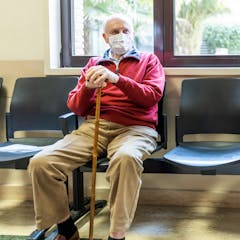
Articles on Health policy
Displaying 121 - 140 of 492 articles

It sounds good in theory, but it doesn’t always work in practice. Here’s what the evidence from the UK and elsewhere shows so far.

If men don’t understand or respect consent, this is likely to do with broader societal issues, rather than a lack of knowledge.

The NT government has invited views on access to voluntary assisted dying. But whether it should include access for those with dementia is not so clear cut.

Funding announced in this week’s federal budget moves Australia closer to eliminating HIV.

The budget sets the foundation for a new approach to community-based mental health care, eases cost-of-living pressures and aims to keep people out of hospital. Will they work? And what’s missing?

The federal government has announced almost $50 million in funding for gynaecological health care. But there’s more to do to help women with chronic pain.

Making the wrong decision about how to access care can impact both your health and finances. So what are your options? And what policy reforms are needed to improve affordable access to health care?

Expanding the places people can get a flu vaccine could help.

The mass-produced wholegrain bread you buy from the supermarket isn’t harmful to your health, even though it’s an ‘ultra-processed’ food. Your overall diet matters more.

The implications of restrictive laws or near-total bans go well beyond abortions, reducing overall access to prenatal care, birthing services, routine reproductive health care and more.

Sugary drinks cause weight gain and increase the risk of a range of diseases. But a tax can reduce sales and make us healthier.

We need to look at the roots of gendered violence, including the experiences and behaviours of perpetrators.

This is a structural problem, not something one budget can fix.

Overworking junior doctors has been normalised for decades. And we all suffer.

Greater payroll taxes for GP clinics means lower profits. Clinics will seek to make up the shortfall in revenue by other means – and this could include reducing the number of patients they bulk bill.

We now have a sensible pathway to improve access to health care, using the skills of nurses, pharmacists and GPs appropriately.

Under the new law, the legal age for cigarette sales will increase by a year each year from 2027. This means people born from 2009 will never be able to legally buy cigarettes in the UK.

Here’s how we design a fairer pathology system, fit for the 21st century, with no out-of-pocket costs or the public.

Allowing pharmacists to dispense nicotine vapes without a prescription would ensure people who are using them to quit smoking could access them legally, while preventing inappropriate sales to youth.

An inhaler that costs nearly $300 in the US goes for just $9 in Germany. What gives?

